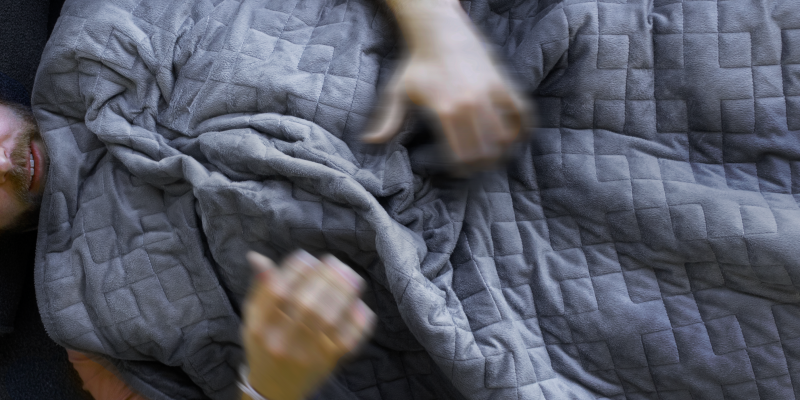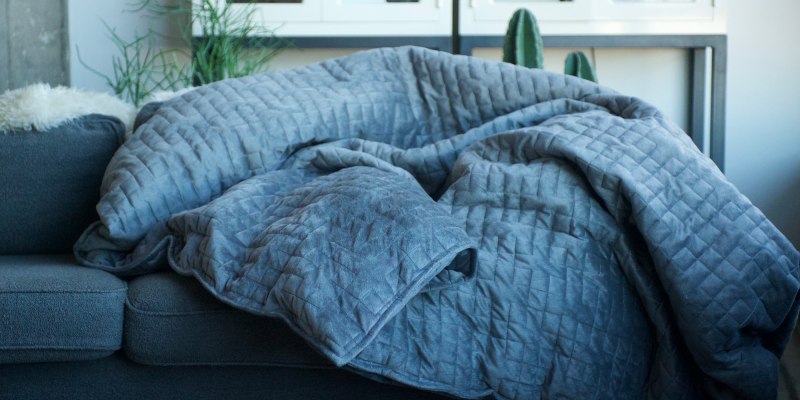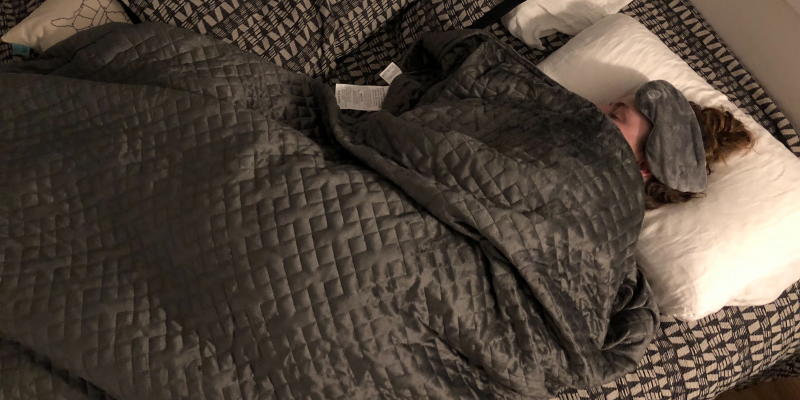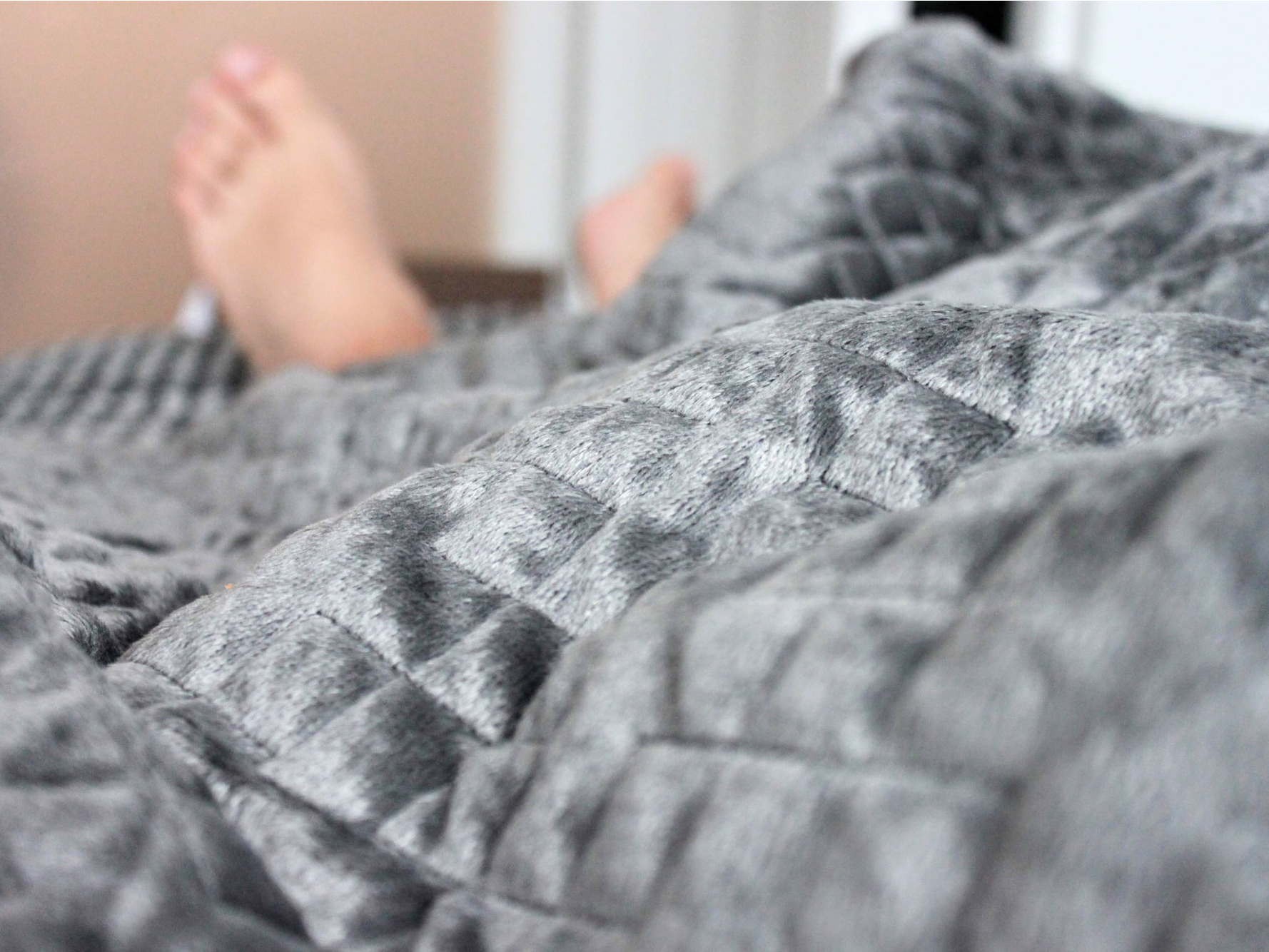- The Gravity Blanket is a weighted blanket that’s intended to help you feel less stressed and sleep better.
- The blanket began as a Kickstarter campaign, which raised more than $4.7 million. Now, Gravity says the blanket has netted more than $15 million in sales.
- I tested the blanket – along with Gravity’s weighted sleep mask – for a few weeks and got some of the best sleep of my life.
- The Gravity Blanket helped my mind to stop racing and put me to sleep almost instantly.
When first I got a Gravity Blanket to test out, I had big plans for turning it into a scientific experiment.
I would wear an Apple Watch, I reasoned, to test how my heart rate responded to a weighted blanket. I planned to take notes about my mood and stress levels to measure whether the blanket could actually relax my central nervous system and calm me down.
The problem is, I kept falling asleep.
For anyone who hasn’t heard of Gravity Blanket or weighted blankets in general, think of it like a Thundershirt for humans. The concept behind weighted blankets is that lying underneath constant and evenly distributed pressure will produce a calming and relaxing effect. Studies have shown that weighted vests or blankets can also help those with autism spectrum disorders, ADHD, high anxiety, or insomnia.
But at the most basic level, weighted blankets mostly just feel like a gentle hug.
Gravity's version of the weighted blanket began as a Kickstarter project in 2017. Gravity raised more than $4.7 million from nearly 24,000 backers to create a plush, single-person blanket that weighs up to 25 pounds.
Now, Gravity says it's sold more than 60,000 weighted blankets, resulting in $15 million in sales. Gravity has now expanded its product lineup to include a weighted sleep mask, a cooling blanket for those who "sleep hot," and a melatonin mist to help you fall asleep.
I had the chance to test out the original $250 Gravity Blanket and the $30 weighted mask for a few weeks. I offered them up to friends, coworkers, and anyone who was willing to sit with a 20-pound blanket on top of them. For some people, the experience felt strange and uncomfortable. Others described it as "womb-like."
Me? I had some of the best naps of my life.

Size matters
The first and most important thing you need to know about the Gravity Blanket is that it comes in varying weights. The right blanket for you depends on your size, since it should be equivalent to about 10% of your body weight.
Not realizing that, I went with the 20-pound blanket and after a few weeks of testing, found it to be slightly too heavy for me. For most adults, 20 pounds doesn't seem like that much, but it can be overwhelming when you're lying underneath it (or trying to schlep it home on the subway).
The other thing to know about the blanket is that it's not the size of a full comforter or duvet, and it's not really meant to be shared. It won't replace your bedding - unless maybe you sleep in a twin bed - and it won't cover both you and a partner at the same time.
Plus, at $250, it's one very pricey blanket.

'It felt like I was in the womb'
All that aside, I was curious to see if a seemingly simple - albeit heavy - blanket would have the same effect that is usually found with pharmaceuticals or meditation. Could it really reduce stress and anxiety? Could it help me sleep?
I decided to offer up the Gravity Blanket to friends, my boyfriend, and coworkers. Let's just say that reactions were ... mixed.
"It feels like an animal is laying on you," one person said.
"I feel relaxed!" another told me. "But maybe it's just a placebo effect?"
A friend came over to my house to try it and informed me that the Gravity Blanket made him feel like he "was in the womb."
"I ... am .... so ... content," he drowsily told me.
But for me, testing a Gravity Blanket was like taking a sleeping pill.
I'm not someone who typically has a hard time falling or staying asleep - actually, sleeping is one of my favorite pastimes. But I'm not much of a napper, and I have a hard time taking "power naps" or falling asleep when it's still light out.
The Gravity Blanket changed all that.
Every time I went to go test the blanket, hoping to track how my heart rate changed or at least document how I was feeling, I passed right out. One night, I laid down with the blanket in the early evening and ended up sleeping under it all night. Another night, I used the blanket and sleep mask while in the throes of a migraine, hoping it might alleviate some of my symptoms - I slept for three hours and woke up with a much milder headache.
Here's proof, kindly snapped by my boyfriend:

I haven't been able to try the blanket yet without passing out within moments, but it seems as though I've been reaping the benefits of a weighted blanket, even while asleep. My mind usually races when I'm lying in bed, and I tend to stress about everything from what I'm going to wear the next day, to trips I have planned months from now. The Gravity Blanket seemed to calm my mind enough that I fell asleep instantly, time and again.
So while my tests certainly haven't been scientific, I can definitely say the Gravity Blanket helps me feel calm, relaxed - and very, very sleepy.

